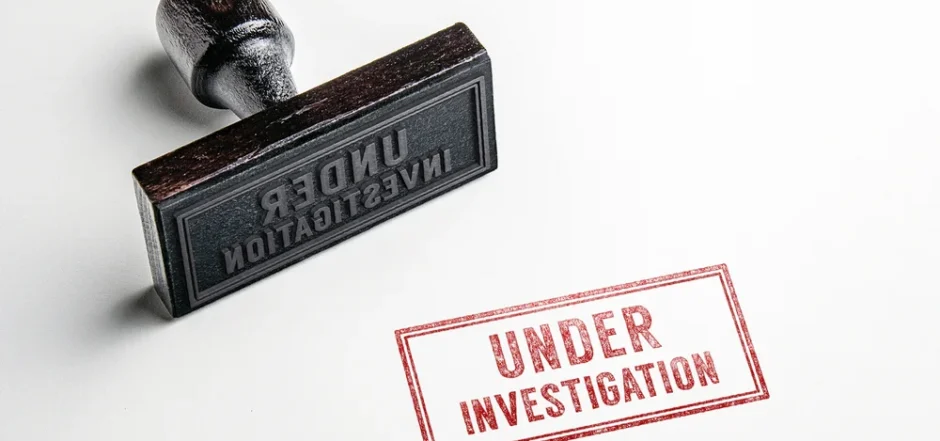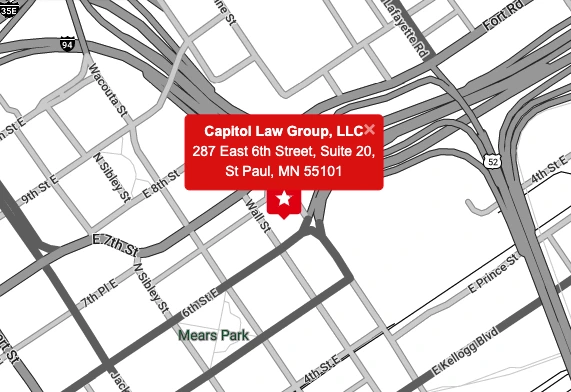MN Hate Crimes Law Under Scrutiny

One GOP state lawmaker wants to make sure that the Jussie Smollet controversy in Chicago can never happen in Minnesota.
Rep. Nick Zerwas (R-Elk River) introduced a bill raising the penalty for making a false hate crimes report from a misdemeanor to a gross misdemeanor. To support his action, Rep. Zerwas cited not only the Jussie Smollet brouhaha but also the 2017 St. Olaf hate crimes hoax. That incident sparked a number of protests in Minnesota. Although many advocates believe that there are only a tiny number of false hate crimes reports and that proposals like this one create a chilling effect, Rep. Zerwas defended his action. “They’re creating this huge rift and division within our community, and causing law enforcement and public safety agencies to expend huge, huge resources to investigate these incidents and these crimes,” he insisted.
Chicago police investigators claim that Mr. Smollet staged a January 2019 hate crime attack to get attention and possibly increase his Empire salary.
The Minnesota Hate Crimes Law
Interestingly, “hate” is not an element of the Minnesota hate crimes law. Instead, Section 609.2233 increases the maximum penalty of certain offenses by 25 percent if the defendant violated the law “because of the victim’s or another person’s actual or perceived race, color, religion, sex, sexual orientation, disability, age, or national origin.” In Minnesota, sexual orientation generally includes gender identity. The almost stunning vagueness in this law leaves it vulnerable to challenge by an assertive St. Paul criminal defense lawyer, as outlined below.
The law can lead to some absurd results. For example, a street mugger who targets women because he believes that they are weaker and less able to resist could be charged with a hate crime.
This kind of aggressive prosecution is not unique to Ramsey County. Recently, some New York prosecutors began charging financial crimes against elderly people, which are misdemeanors, as hate crimes. Why? According to one head prosecutor, the defendants believed that elderly people were easy to fool, and under New York law, which is similar to Minnesota’s law, such conduct constitutes a hate crime.
How St. Paul Criminal Defense Lawyers Deal with Hate Crimes
As mentioned, the law’s vagueness is a problem. Attorneys all over the country, and not just St. Paul criminal defense lawyers, have repeatedly challenged hate crimes laws on this basis. Essentially, a law is unconstitutionally vague if:
- A reasonable person cannot determine what the law prohibits, and
- Prosecutors might be able to overuse the law.
That second element is clearly in play, as the mugger example and New York experience clearly point out. As for the first element, Minnesota’s hate crimes law is limited first, second, or third-degree assault. That limitation might save the law, at least on its face.
Even though hate, prejudice, or other strong feeling is not a listed element, as a practical matter, a Ramsey County prosecutor must establish bias in court. Such evidence usually involves:
- Selecting Victims: If the defendant stands at a street corner and waits for a man of a certain race to saunter by before assaulting the victim, the defendant probably targeted the victim due to his race. But this kind of thing does not happen very often.
- Prior Statements: In hate crimes cases, prosecutors often do things like introduce prior tweets and other social media posts that deride certain population groups. But the connection between such prior statements and a subsequent assault is tenuous, at best.
- Contemporaneous Statements: If the defendant uses racial, ethnic, or other slurs during the assault, it is difficult for a St. Paul criminal defense lawyer to successfully respond.
The prosecutor must establish bias, and all other elements of a hate crime, beyond any reasonable doubt. That’s the highest evidentiary standard in Minnesota law.
Sometimes, it is better to attack the underlying charge. If the prosecutor cannot prove assault, the penalty enhancement never comes into play. Some assault defenses include:
- No “Substantial Bodily Harm”: Aggressive prosecutors often bring the stiffest charges that the facts could support. Many times, that overly-aggressive posture is their undoing. SBH basically means putting someone in the hospital. If the alleged victim went to the hospital, but was treated and released, there probably was no substantial bodily harm.
- No “Great Bodily Harm”: The same thing applies here. GBH basically means putting someone in a coma. Sometimes, prosecutors file first-degree assault charges without consulting the alleged victim’s medical records.
- No Use of a Dangerous Weapon: Section 609.22, the assault with a deadly weapon statute, requires that the defendant actually use such a weapon to inflict harm, not merely possess it, brandish it, or threaten to get it out of the car.
Such lack of evidence defenses are often effective because, as mentioned, the burden of proof in assault cases is incredibly high.
Work with Assertive Attorneys
Minnesota’s vague hate crimes law could mean a lot of trouble. For a free consultation with an experienced St. Paul criminal defense lawyer, contact Capitol City Law Group, LLC. Go online now, call us at 651-705-8580, or stop by 287 6th St E, Suite 20, St Paul, MN 55101.




